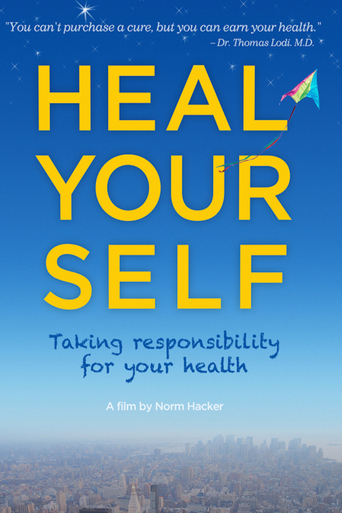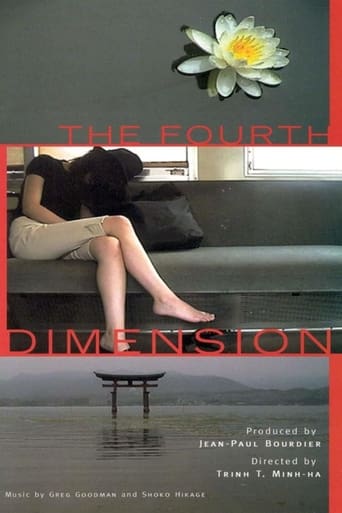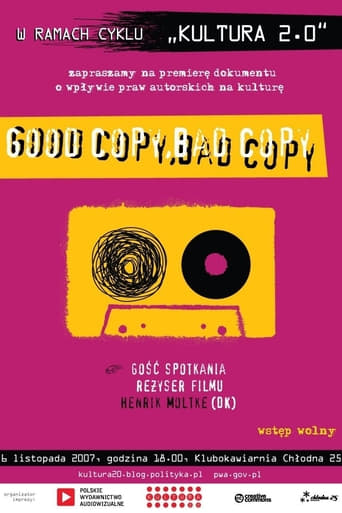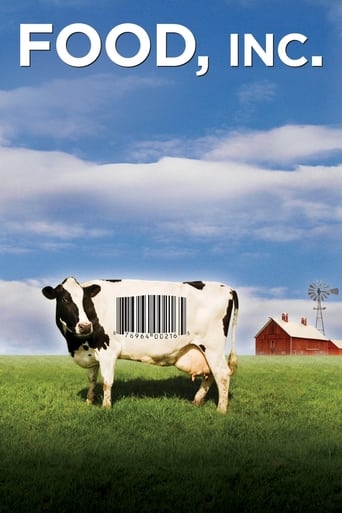
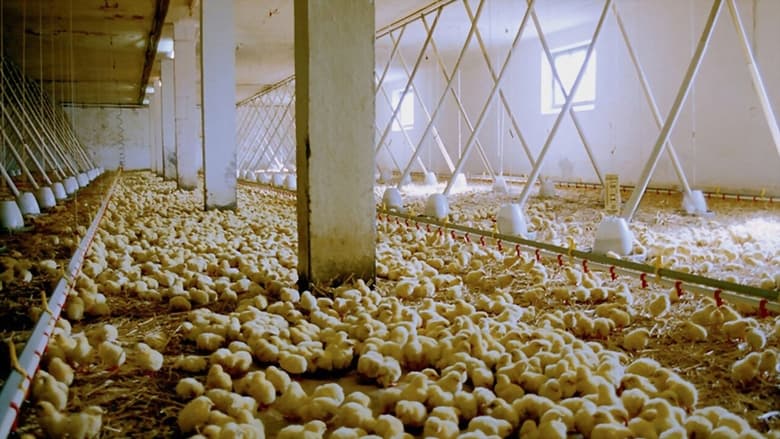
We Feed the World (2005)
A documentary that exposes the shocking truths behind industrial food production and food wastage, focusing on fishing, livestock and crop farming. A must-see for anyone interested in the true cost of the food on their plate.
Watch Trailer
Cast


Similar titles
Reviews
Waste of time
hyped garbage
good back-story, and good acting
The movie turns out to be a little better than the average. Starting from a romantic formula often seen in the cinema, it ends in the most predictable (and somewhat bland) way.
Well, if you're a beginner in knowledge of globalism and / or capitalism, this movie may be very interesting for you. It shows you a new perspective of life on earth; people who get exploited for the profit of a few ones. Men looses their jobs at the dictations of EU and modern technology; vegetables are grown up by some new kind of hybrid-seeds, which in the end also just maximizes the profit of CEOs. All in all: Capitalism destroys mankind. Nothing new. Don't misunderstand me: Im by myself a huge enemy of capitalism, better to say: I hate it. But this movie doesn't show anything I don't already know. Some nice pictures, underlined by sad and / or depressed people who suffer from exploitation. What I criticize is that you don't get explained the whole complex thats involved in this. 'Cause its much more. So we had to see more about politics, about suppression, about corporations and their daily work (well, Nestle was a good example, but too close to the surface.)All in all a good movie for Children and people who want to learn about how global-economics work. 7/10.
Often beautiful cinematography. Quite stark at times, but necessarily so. This is a very valuable film from an point of view not often heard.This is a close look at the current production methods for what we eat. It reveals much that is hidden from the consumer. It shows factory farming up close, the source of most of our supermarket offerings. All of the solutions to the issues raised in the film are not presented, but the concerns and need to come up with solutions is persuasive. Clearly, considerable effort is required, but there are many ways to get there and they all start with opening the eyes to that is going on.The film illustrates how the overriding pursuit of profit affects the nutritional values, chemical and genetic hazards in our food.A good starter on intelligently approaching food. I suggest watching it to figure out what to do next.
Shallowness refers to contents, I don't have any special request for the presentation, this is a documentary meant to inform, not to impress.Sad thing: I am old enough to remember how things were, at least in Romania, and we're actually not doing better. On the contrary, from the quality of food to the quality of beliefs and life itself, we lost a lot and we're bound to continue losing. Under the cover of getting rid of communism, we're actually getting rid of a lot more. But who cares, as long as there's cheap stuff to put in our mouths... As for the human right to water, I believe that the Nestle CEO aims to sell to us air in the next decade, and we're stupid and lazy enough to let him and others like him do exactly that. The only thing that's effortless on this planet is stupidity.It looks that I'm rather tempted to comment the information released in the movie than the movie itself, and IMDb is not the place for that. I will then say only that sometimes more means less, in the end.
So I begin my selection of this year's SIFF with a documentary. Directed by Erwin Wagenhofer, We Feed the World begins by highlighting a very fundamental wastage. That of overnight bread, tons of it being offloaded, meant for the incinerated, when there are thousands left hungry.The documentary focuses on various aspects on the supply side of the food chain, giving some insight to the various industries which produce food, like fishing, vegetables and poultry. It also provides a glimpse into the political side of supplying food, that of the profit maximization strategy of any public company (here, it's Nestle), of the genetically modified seeds which supposedly produces superior crop as opposed to better tasting, natural ones, and various EU plans and initiatives which seem to go down the wrong path instead of fulfilling its supposedly planned objectives.While it covers a lot of ground, some segments proved to be a little draggy and preachy. I particularly enjoyed the segment on the fishing industry, where there are plans to wrest knowledge from the small timers operating smaller fishing operations, and to eventually merge/close them down when the bigger boys come into the picture. As demonstrated in the movie, there are reasons why big trawlers doesn't equate to fresher and better catches.The other segment which moved was on the Brazilian's poor north-eastern parts, where on one hand, you have very poor people going hungry all the time, yet Brazil's one of the major exporters of maize to Europe. Maize which are used for burning for fuel generation. It just boggles the mind, and makes you feel sad at the way things work, illogical as it may seem, in the name of profit - watching the kids drink untreated murky water, and the adults resorting to unnatural means of keeping their children alive, will gloom your day.And I could have swore off chicken come the final segment. Nowadays lifestock are treated as an 8-week cycle of a production line, from incubating, hatching, fattening, until the final days of slaughtering, where they're hung upside down by the legs in conveyor belts, before passing through a circular bladed discs where their throats are slit, and left bleeding till death. For those which are missed by the blades, there is a butcher on standby with a knife to do the deed.But while the movie tried to made its points, what I found lacking are the many ways in which to link the message to the issues. Many times it felt a little sporadic, or the linking done quite weakly through intertitles. That aside, perhaps I'm already attuned to the more in-your-face style of Michael Moore, nevermind if there are echoes that his style is manipulative. For a topic like this, perhaps it could gain from that bit of controversy to hammer its opinions through.



